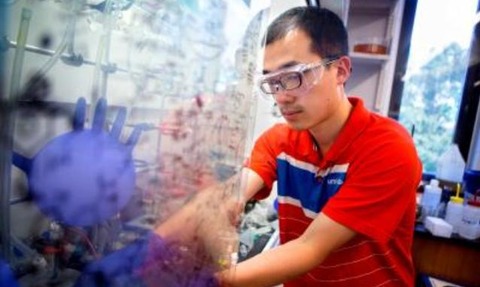Chemists use electricity to manufacture more environmentally friendly drugs
13 Aug 2017

Researchers at Cornell University say electrochemistry could be used to manufacture drugs in a more environmentally friendly way.
According to the researchers, current pharmaceutical manufacturing involves creating complex organic molecules that require several chemical steps and intense energy. This in turn creates a large amount of environmentally harmful - and usually toxic - waste.
When you can create a product electrosynthetically, rather than chemically, it is much more straightforward and sustainable
Song Lin, Cornell University
Song Lin, assistant professor of chemistry at Cornell University, said many widely consumed therapeutic agents – such as penicillin and flu medicine – are vicinal diamines, which contain carbon-nitrogen chemical bonds, a bioactive foundation for the medicine.
Lin and his team have developed a technique that creates vicinal diamines more easily and without the toxic waste. The process uses electrochemistry and then employs manganese.
Lin said: "The current process generates a lot of waste product to make this chemical bond. When you can create a product electrosynthetically, rather than chemically, it is much more straightforward and sustainable.”
As a result of the research, it is thought the production of various pharmaceuticals could be manufactured in a more sustainable way.
Readers' Comments
There are no comments on this article, leave a comment below to have your say
Have Your Say
The comments have closed for this article

